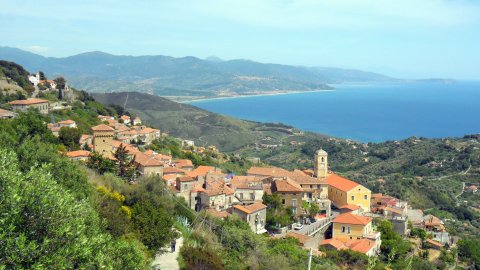Exponential Motives
Abstract
Numbers like the special values of the gamma and the Bessel functions or the Euler-Mascheroni constant are not expected to be periods in the usual sense of algebraic geometry. However, they can be regarded as coefficients of the comparison isomorphism between two cohomology theories associated to pairs consisting of an algebraic variety and a regular function: the de Rham cohomology of a connection with irregular singularities, and the so-called “rapid decay cohomology”. Following ideas of Kontsevich and Nori, I will explain how this point of view allows one to construct a Tannakian category of exponential motives over a subfield of the complex numbers. The upshot is that one can attach to exponential periods a Galois group that conjecturally governs all algebraic relations between them. Classical results and conjectures in transcendence theory may be reinterpreted in this way. No prior knowledge of motives will be assumed, and I will focus on examples rather than on the more abstract aspects of the theory. This is a joint work with P. Jossen (ETH Zürich).
Motivic Eisenstein cohomology of Hilbert modular varieties
Abstract
Beilinson has given a motivic construction of the Eisenstein cohomology on modular curves. This makes it possible to define Eisenstein classes in Deligne-Beilinson, syntomic, and ´etale cohomology. These Eisenstein classes can be computed in terms of real analytic and p-adic Eisenstein series or modular units. The resulting explicit expressions allow to prove results on special values of classical and p-adic L-functions and lead to explicit reciprocity laws. Harder has more generally defined and studied the Eisenstein cohomology for Hilbert modular varieties by analytic methods. In this talk we will explain a motivic and in particular algebraic construction of Harder’s Eisenstein cohomology classes, which generalizes Beilinson’s result. This opens the way to applications, similar as for modular curves, in the case of Hilbert modular varieties.
Flows on Homogeneous Varieties
Abstract
The so-called Ax-Lindemann theorem asserts that the Zariski closure of a certain subset of a homogeneous variety (typically abelian or Shimura) is itself a homogeneous variety. This theorem has recently been proven in full generality by Klingler-Ullmo-Yafaev and Gao. This statement leads to a variety of questions about topological and Zariski closures of certain sets in homogeneous varieties which can be approached by both ergodic and o-minimal techniques. In a series of recent papers with E. Ullmo, we formulate conjectures and prove a certain number of results of this type. In this talk I will present these conjectures and results and explain the ideas of proofs
17:30
Some remarks on duality
Abstract
One of many overlaps between logic and topology is duality: Stone duality links Boolean algebras with zero-dimensional compact Hausdorff spaces, and gives a useful topological way of describing certain phenomena in first order logic; and there are generalisations that allow one to study infinitary logics also. We will look at a couple of ways in which this duality theory is useful.'
14:00
14:00
Derived Hecke algebras
Abstract
The smooth representation theory of a p-adic reductive group G with characteristic zero coefficients is very closely connected to the module theory of its (pro-p) Iwahori-Hecke algebra H(G). In the modular case, where the coefficients have characteristic p, this connection breaks down to a large extent. I will first explain how this connection can be reinstated by passing to a derived setting. It involves a certain differential graded algebra whose zeroth cohomology is H(G). Then I will report on a joint project with R. Ollivier in which we analyze the higher cohomology groups of this dg algebra for the group G = SL_2.
14:00
New challenges in the numerical solution of large-scale inverse problems
Abstract
Inverse problems are ubiquitous in many areas of Science and Engineering and, once discretised, they lead to ill-conditioned linear systems, often of huge dimensions: regularisation consists in replacing the original system by a nearby problem with better numerical properties, in order to find meaningful approximations of its solution. In this talk we will explore the regularisation properties of many iterative methods based on Krylov subspaces. After surveying some basic methods such as CGLS and GMRES, innovative approaches based on flexible variants of CGLS and GMRES will be presented, in order to efficiently enforce nonnegativity and sparsity into the solution.




